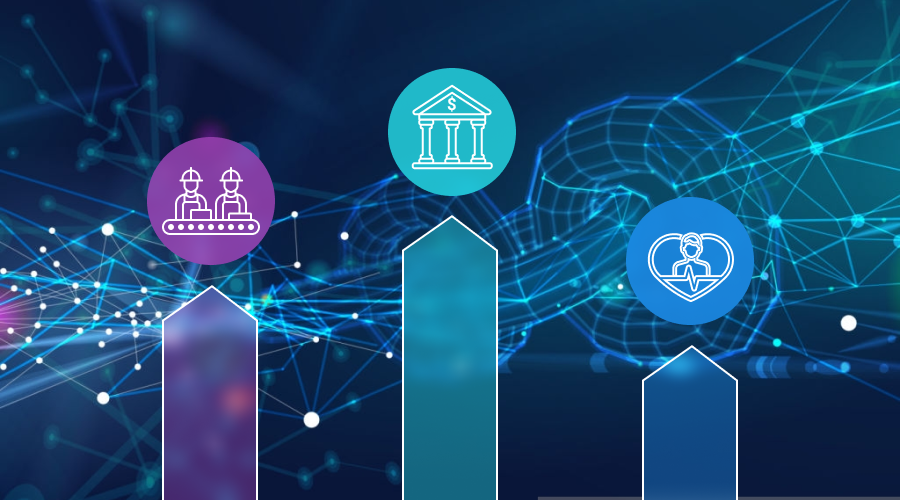
Blockchain Adoption Across Industries: Key Players that Drive Adoption
Jul 28, 2020
Long term future of blockchain technology is exciting: existing blockchain networks continue to foster transformation to numerous industries. Many business leaders may wonder about the main industries adopting and leveraging blockchain technology right now.
Let us look at the three key industries that adopt blockchain much faster than the rest.
Healthcare
Healthcare is the space, where the blockchain can have the most meaningful and immediate impact — it is an industry in which data transparency, traceability and speed of access can provide the information necessary for meaningful decisions and encryption of personal data is essential and crucial for privacy policies. When the COVID-19 pandemic started, the pandemic-related cyber attacks number started to rise significantly: hackers targeted the hospitals and healthcare institutions all over the globe. Blockchain seemed like a great fit to store and share encrypted personal data, approve medicine after clinical trials or maintain medical history and such projects have been at the centre of experimentation for the last year. While few have reached production, there is a high possibility that there will be a wave of healthcare solutions which will go live in the near future, once regulatory concerns have been sorted out.
Supply Chain
The supply chain is at the core of every manufacturing business, the channel through which not only materials, services, and financial resources, but different types of data flow — from the idea to the delivery. The blockchain technology enables optimization of processes in a supply chain that traditionally fall outside of enterprise solutions. Modern supply chains are complex, involve numerous parties, and demand much a higher level of trust and traceability. For a number of supply chains, the huge issue is that there are lots of shippers, suppliers and documents that should be checked and their actions verified. So, the blockchain can add a piece of trust, transparency, and traceability in this process. The development of blockchain will bring immutability and trustworthiness, hence could lead to an evolution of logistics and supply chain in the not so distant future.
FinTech
Financial services is the space that experiences the most intense disruption and significant investments in technology development. In 2019 such projects like J.P Morgan’s stable coin, TON, Libra as well as CDBC’s of The People’s Bank of China and the European Central Bank, dominated the news. Financial sector players of all sizes eagerly adopt the blockchain as soon as they can. Although investments in the projects were down in 2019 over 2018 in comparison with 2017, it is expected a steady increase in 2020 and further. Interest in the blockchain in the financial sector remains high, especially in Decentralized Finance (DeFi) projects, absolutely disrupting the cryptomarket in 2020.
The Challenges of Adoption
The core challenges in the blockchain’s adoption are regulatory policies and mutual communication standards, which requires bringing core participants together to solve these issues. There are some examples of blockchain platforms that work with the competitors and collaborators and are able to unite them to develop the needed standards globally. For instance, the IBM Foodtrust platform established last year, now works with Carrefour, Nestle and Walmart. But this is more an exception than a rule.
McKinsey says that blockchain is around 5 years away from a wide adoption phase, mainly because of the lacking standards and consolidated regulatory approach. To resolve these issues, the industry needs to establish mutual standards across the entire blockchain ecosystem.
